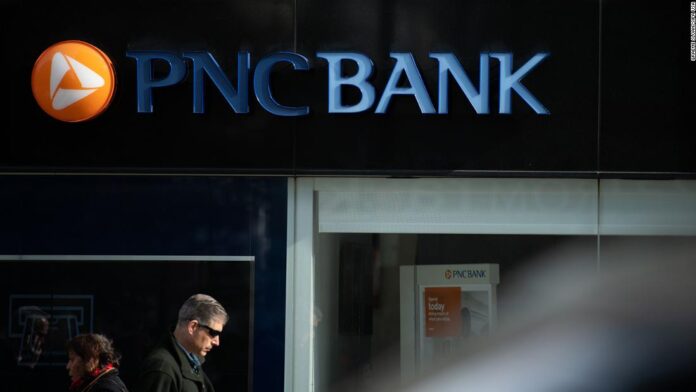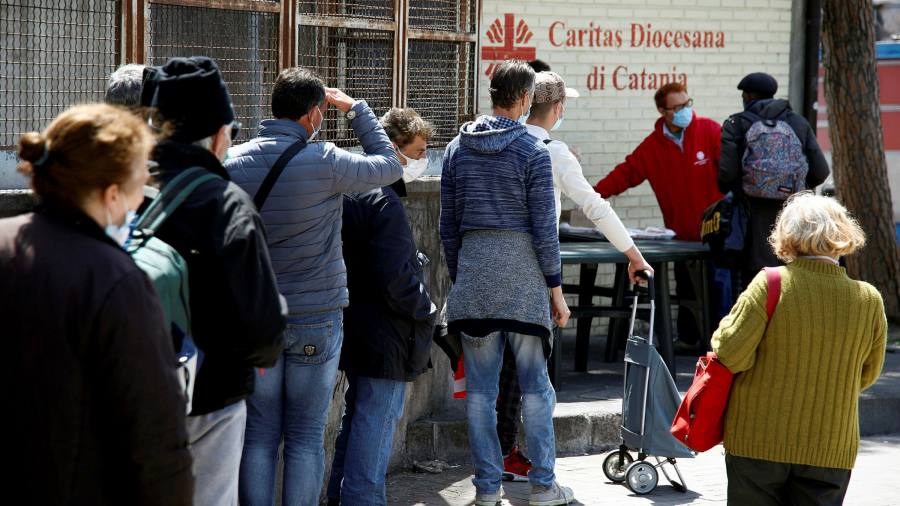The Pittsburgh-based lender is buying the American unit of Spanish financial group BBVA (BBVA) for $11.6 billion, the companies said Monday.
The cash deal is the second-biggest banking sector merger since the global financial crisis, after the $66 billion agreement in 2019 between BB&T and SunTrust to create Truist (TFC).
Once the deal closes, PNC will have more than $560 billion in assets, making it the fifth largest retail bank in the United States, according to the company, behind JPMorgan Chase (JPM), Bank of America (BAC), Wells Fargo (WFC) and Citigroup (C).
Shares in BBVA surged more than 16% in Madrid.
PNC said in a statement that the transaction “significantly accelerates” its national expansion strategy, and will leave it with a presence in 29 of the 30 largest markets across the United States. BBVA’s US subsidiary has over $100 billion in assets, and operates more than 630 branches in Texas, Alabama, Arizona, California, Florida, Colorado and New Mexico.
The deal comes amid a trying year for US banks, which have set aside billions of dollars to cover bad debts arising from the coronavirus recession. JPMorgan CEO Jamie Dimon last month cautioned that the US economy could shrink again in the fourth quarter, highlighting the risks facing lenders.
Several US states have imposed fresh restrictions in recent days to curb an alarming increase in new coronavirus cases, which will further weigh on the recovery. Given the worsening economic outlook and ultra-low interest rates, banks may seek the benefits of scale to improve profitability.
PNC said it expects the deal to add about 21% to its earnings in 2022 and deliver cost savings in excess of $900 million. The company expects to incur merger costs of $980 million.
CEO William Demchak said that PNC is funding the purchase of BBVA’s business with proceeds from the sale six months ago of its $17 billion stake in BlackRock (BLK).
Demchak said at the time that selling its share in the world’s largest asset manager would leave it “well-positioned to take advantage of potential investment opportunities that history has shown can arise in disrupted markets.”
The deal is expected to close in the middle of 2021, pending regulatory approval.










